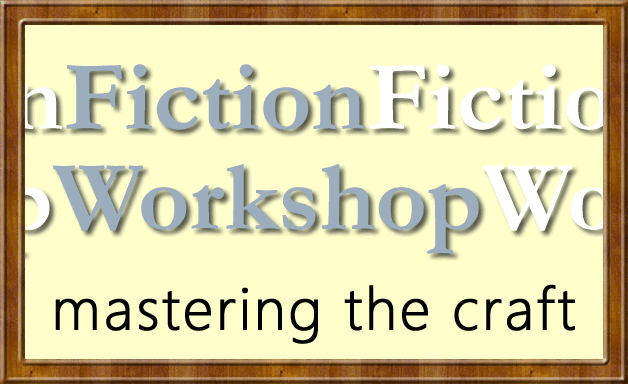Remember, Readers Are Forgiving
 A few weeks ago, I wrote an article about 10 common mistakes I’ve seen in novel writing due to my day job as a fiction editor. Have you ever written or said something, taken a certain position, and then seen examples to refute it?
A few weeks ago, I wrote an article about 10 common mistakes I’ve seen in novel writing due to my day job as a fiction editor. Have you ever written or said something, taken a certain position, and then seen examples to refute it?
What I should have added to that article was something along these lines: fiction writing styles change over time. When Charles Dickens wrote Little Dorrit, his writing style was popular in his day.
But styles change. There’s a reason no one wears bell-bottoms today.
The mistakes I cited weren’t grammatical problems; rather, they were “mistakes” according to current expectations on the part of publishers and literary agents. The word current is important to note here because who knows what the popular style will be in a decade. Maybe someday confining a single viewpoint to each scene will seem old-fashioned.
Maybe the next big trend will be more novels written in the omniscient viewpoint. Why do I say that? Because, according to my following illustration, readers tend to be forgiving in certain contexts.
 Have you ever read Les Miserables, the classic novel by Victor Hugo? I own a copy of this sizable tome (see graphic to left) in paperback; words on the back cover say, “It is the ONLY completely unabridged paperback edition available today.” It clocks in at 1,463 pages, yet the free public-domain e-book has been trending in the top downloads at Amazon.com for months. As of this printing, of the 843 reviewers, 575 give it five stars.
Have you ever read Les Miserables, the classic novel by Victor Hugo? I own a copy of this sizable tome (see graphic to left) in paperback; words on the back cover say, “It is the ONLY completely unabridged paperback edition available today.” It clocks in at 1,463 pages, yet the free public-domain e-book has been trending in the top downloads at Amazon.com for months. As of this printing, of the 843 reviewers, 575 give it five stars.
The craze due to the movie by the same name surely has some bearing on this phenomenon. But 575 five-star reviews? Especially when this classic commits—dare I say it?—one of the big fiction no-nos: telling instead of showing. Consider this excerpt:
Javert had followed Jean Valjean from tree to tree, then from street corner to street corner, and had not lost sight of him a single instant; even in the moment when Jean Valjean felt himself most secure, Javert had his eye on him. Why didn’t Javert arrest Jean Valjean? Because he was still in doubt. . . .
Let us add that Javert had his own personal scruples; the injunctions of his conscience were added to the injunctions of the Prefect. He really was in doubt.
Yes, lots and lots of telling instead of showing. But writing this way isn’t a sin. It just isn’t in style.
And readers are forgiving. They don’t care about the rules, as long as the story itself resonates with them in a powerful way. And in fact there’s nothing in itself wrong with telling a story through the viewpoint of an omniscient narrator . . . unless you want to be a published author today.
So if you’re writing to be published in 2013, by all means follow the rules but keep in mind that readers are often forgiving on those rare occasions when a movie is so popular that readers are willing to look past the novel version’s literary faux pas.
 Speaking of evolving fiction style, I lately began reading the Star Wars Thrawn Trilogy by Timothy Zahn. Based on a friend’s strong recommendation, I grabbed these novels for dirt cheap at a Half-Price Books in Milwaukee. (By the way, Half-Price Books is one of my favorite stores on the planet.)
Speaking of evolving fiction style, I lately began reading the Star Wars Thrawn Trilogy by Timothy Zahn. Based on a friend’s strong recommendation, I grabbed these novels for dirt cheap at a Half-Price Books in Milwaukee. (By the way, Half-Price Books is one of my favorite stores on the planet.)
Anyhow, if you’ve ever wished the Star Wars movies had continued after Return of the Jedi, this is the series for you. Clean. Wholesome. Han Solos really sounds like the Han we’ve come to love and miss. Princess Leia is married to Han and even pregnant with Jedi twins (exciting stuff) . . . but that’s not why I’m referring to this series.
My editing job is a blessing and a curse. It feeds my family, but it sometimes takes the joy out of reading because of my inability to turn off the internal editor. Though I’m enjoying book one, Zahn’s speech tag style is frankly a distraction. It must reflect style in 1991 because it would be considered outdated by today’s standards. Today’s standard is to use a simple “said” 99 percent of the time minus “ly” adverbs. Just shows you how quickly style can change. Let me give you some examples:
“It has indeed,” Obi-wan Kenobi said gravely.
“It is the pattern of all life to move on,” Ben reminded him.
“I won’t,” Luke promised.
“In other words,” Luke amplified, “a Jedi can’t get so caught up in matters of galactic importance that it interferes with his concerns for individual people.”
“Tell me about it,” Leia said dryly.
“Now, now,” Leia admonished, mock-seriously.
“Diplomacy,” Han growled, making a curse out of the word.
Am I still enjoying the novel? Absolutely. Why? Because it’s Star Wars. Because we readers tend to be forgiving. Because style concerns are secondary to most of us.
If only agents and publishers worked the same way.
- Six Reasons to Join My Facebook Release-Date Event
- Tenth Plague Endorsement from Novelist C.J. Darlington










So right. And “mock-seriously?” That would be laughed off most editors’ desks today. But I recently noticed that The Chronicles of Narnia are filled with “to be” verbs. And it bothers me not one whit. Same thing with the classics. Though I often skim-read those wordy paras, I sort of miss those “ominous thunderclouds scudding across the heather-draped moors”-type dramatic, descriptive paragraphs.
Adam,
Thanks for the post. I’m glad that readers are forgiving/understanding. The challange is getting our books to them. There are many “quality control” hoops to jump through–most of which seem to be based on commercial interests–which, of course, is understandable from a publishing house’s point of view. The must frustrating thing for me is that there isn’t one set of rules/guidelines that is uniformally applied from publisher to publisher or agent to agent.
I know, Larry. These folks are the gatekeepers, and we have to please them. But what you say is true: they don’t all seem to be on the same page in every area. Consider the plot summary. Some wants only two pages. Some want as many as ten. So each time a writer knocks on the door of an agent or publisher, he has customize his submission. A one-size-fits-all approach would make life much easier, at least for the struggling author. Thanks for writing.
Don’t even go there. 🙂 I’ve seen horrible writing in Narnia books and all sorts of other books, yet I don’t care either. Narnia books are exhibit A on “telling versus showing,” yet I’d never criticize C.S. Lewis or those wonderful Narnia books. They are what they are, yet I doubt anybody could publish them today. The standards have gotten so much tougher, in my opinion. If I can turn off my internal editor, then I can enjoy these books so much more.